|
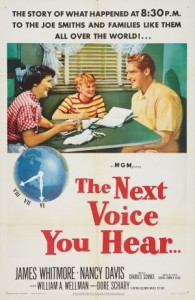
Synopsis:
Blue-collar worker Joe Smith (James Whitmore), his very pregnant wife Mary (Nancy Davis), and their son Johnny (Gary Gray) hear a mysterious voice on the radio one night, claiming to be God; soon the entire town — and the entire world — is waiting to hear what The Voice will say next.
|
|
Genres, Themes, Actors, and Directors:
- Fantasy
- James Whitmore Films
- Pregnancy
- Radio
- Religious Faith
- William Wellman Films
Review:
This most unusual B-picture — produced by MGM, directed by William Wellman, and starring Nancy Reagan (nee Davis) before she married Ronnie — is a rare little treat. Decidedly understated, and more concerned with inner growth than outer conflict, the story unfolds gradually and gracefully, only occasionally descending into the realm of campy humor. While we’re presented with what in many ways looks like a prototypical 1950s nuclear family — working husband, pregnant wife, and paperboy son — we’re also allowed to see the small frustrations and fears each possesses: Joe is harassed by his unfeeling boss (Art Smith); Davis is worried about the appearance of her first gray hair, as well the upcoming birth of her second child; and Johnny is horrified to see his father come home drunk one night. They may represent the all-American dream, but there are clearly issues left to be settled.
In a clever twist, we never actually hear “God’s” voice on the radio: while this decision was likely influenced by a reluctance to commit sacrilege, it works well as a narrative device, helping us to focus instead on people’s reactions. Also interesting is the fact that The Voice is heard by all people in all countries — in “churches, temples, synagogues, and mosques” — and that the name Jesus is never mentioned; this allows the film’s decidedly Christian elements (the lead characters are named Joe and Mary; Mary is pregnant) to remain refreshingly vague; one could even read The Voice as a harbinger of world unity.
With that said, the film does possess some more laughable elements — including Davis’s pregnancy (she’s supposed to be days away from delivering, but only looks about 5 months pregnant, and not very realistically); some of the more cliched interactions between Joe, Mary, and Johnny; Mary’s unexplained fear of giving birth (despite the fact that she’s done so successfully before); and the overly preachy scenes towards the end. Nonetheless, I was surprised at how quickly I got caught up in this gently charming fable, which never tries to be more than it is, and certainly has its heart in the right place.
Redeeming Qualities and Moments:
- James Whitmore as “Joe Smith”
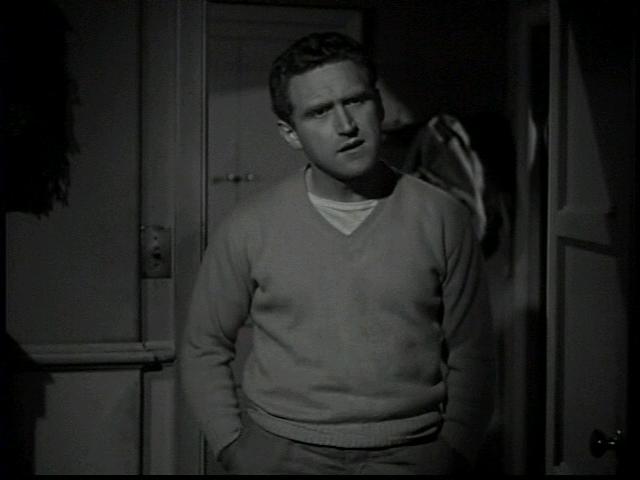
- Nancy Davis (a.k.a. Reagan) as “Mrs. Mary Smith”
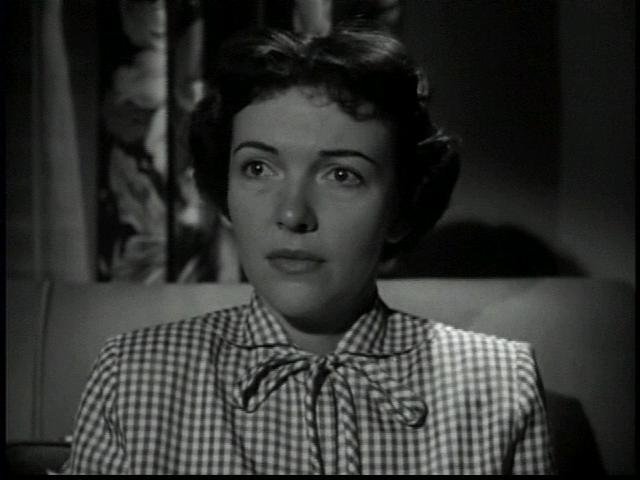
- Gary Gray as the Smiths’ son, Johnny

- A sanitized yet sensitive look at ’50s blue collar family values
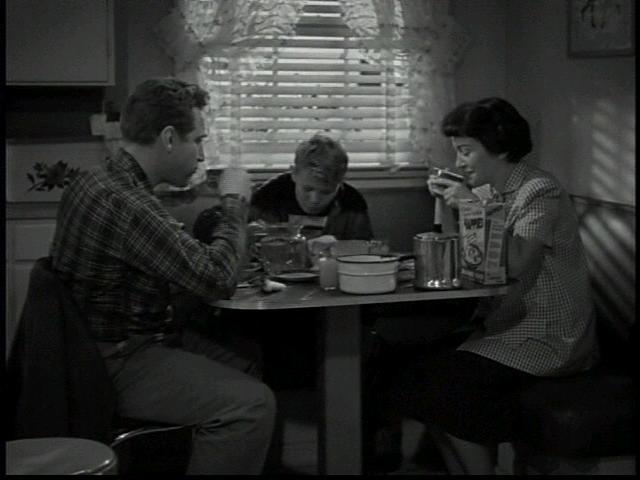
- Good use of suburban L.A. locales

- Johnny perfectly imitating his father’s morning ritual with the car
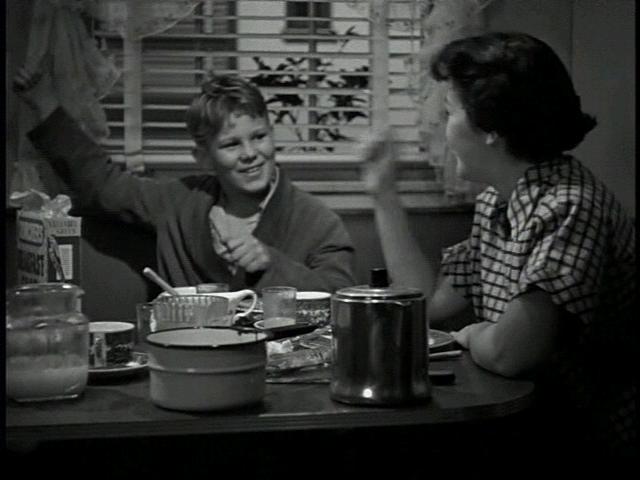
- A decidedly unusual and thought-provoking premise
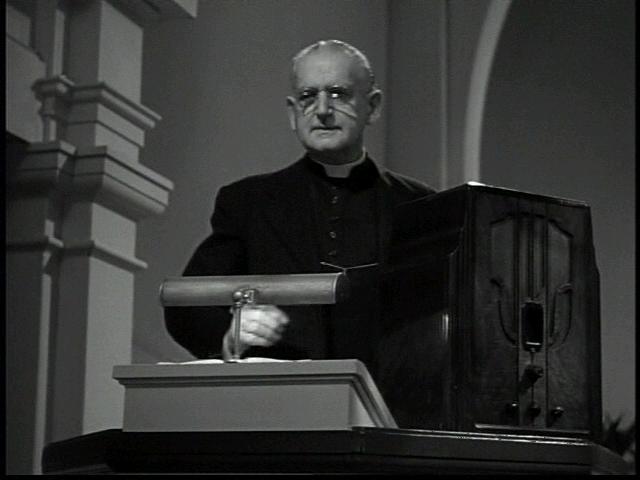
- David Raksin’s score
Must See?
Yes, for its status as an erstwhile favorite.
Categories
- Good Show
- Historically Relevant
Links:
|








One thought on “Next Voice You Hear, The (1950)”
A must.
As noted, ‘TNVYH’ does have “a decidedly unusual and thought-provoking premise” and “certainly has its heart in the right place.” I hadn’t seen this since I was a kid, and the years between have not changed its sweetness. In fact, although it’s very much a product of the ’50s, I find it timeless somehow – it’s never a bad time for God to speak up.
When He does just that in this picture, obviously uneasiness results in some listeners. As He says: “…There is still a good deal of speculation and skepticism about whether I am who I am. I also see many expressions of fear. Why should you be afraid? Why should children be afraid of their fathers?” (I assume the fact that Jesus is not mentioned is that this is the God the Father speaking.)
Of course, God speaking is a fantasy for believers and perhaps for many non-believers as well. But here He has more to pass on than Whitmore states: “Maybe that’s what He’s had on His mind all along – just teachin’ us to take it easy.” God’s concluding wish – though seemingly preachy for viewers – is one that all of us in the human condition would do well to remind ourselves of frequently: “…But look now for the miracles that you can create – the miracles of peace and loving kindness. These are the miracles that are within all of you.”
I don’t find anything particularly campy in this picture – though mom’s ‘pregnancy’ can be laugh-inducing. I’m reminded of the ‘I Love Lucy’ episode – which aired a few years later. I don’t recall how pregnant Lucy looked, but it was still a time when saying the words ‘pregnant’ and ‘pregnancy’ was bizarrely forbidden. Perhaps when this film was made, there was still a code in place which considered the sight of an obviously pregnant woman something to be kept from the big screen. Hmm…
At any rate, I’m particularly glad to have visited this one again – and will probably do so from time to time. It’s downright refreshing.